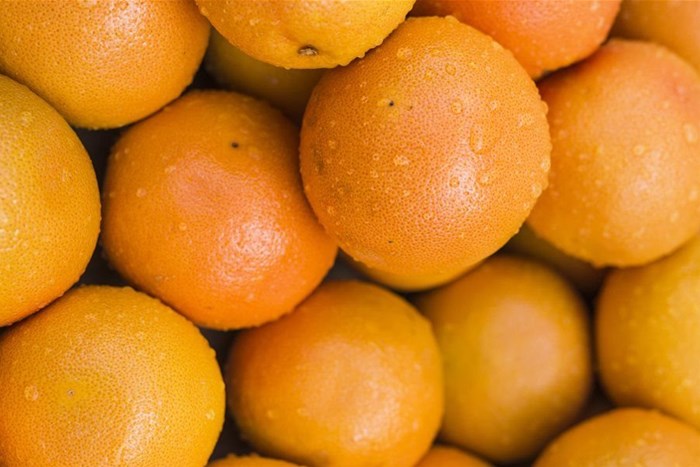
This year 1.9 million fewer cartons of Grapefruit were packed for export than in 2022. It is nonetheless 400,000 more than estimated at the beginning of the season. The 2023 total, 14.8 million, is considerably less than the 20.3 million packed two years ago in 2021, continuing the downward trajectory.'
Mandarins: Mandarin exports continue to increase substantially. This past season 37.9 million cartons were packed, an increase of 6.1 million year-on-year and 3.8 million more than estimated at the start of the season. This growth is largely due to increased orchard plantings as well as strong demand in the European Union (EU) and the United Kingdom.
Lemons: Lemons also showed an increase. 900,000 more cartons were packed this past season, bringing the total to 35.6 million. However, this was 1.3 million cartons less than the pre-season estimate.
Oranges have shown a decrease overall. This year 24.7 million cartons of Navels were packed, 3.1 million less than last year, and slightly below the estimate. Valencias also recorded a decrease - 1.7 million cartons less, with a total of 52.1 million cartons packed. This total is 2.4 million less than the original estimation.
• Load shedding: Growers were unable to irrigate, fertilise, pack, and cool citrus due to sustained high levels of load shedding.
• Input costs: The general surge in farming input costs continued during the 2023 season.
• Floods: Devastating floods in the Western Cape in June also impacted farms in that province. The flood caused damage of at least R500 million to citrus farms in the Citrusdal valley.
• Logistics crisis: Another significant challenge was the worsening logistics crisis, which has paralysed large segments of our country's export economy. Congestion at ports and a dysfunctional freight rail network has cost farmers dearly and is, in effect, halting growth opportunities for the citrus industry.
Justin Chadwick, CEO of the Citrus Growers'Association of Southern Africa (CGA), says that CGA is engaging with Transnet on these issues, but is in full support of Transnet expediting public-private partnerships both in the ports and the rail system as a matter of urgency. In this regard, the CGA has welcomed the announcement of International Container Terminal Services (ICTSI) as the preferred bidder to develop and take over the operations of Durban Container Terminal Pier 2 and have already started engaging with the company ahead of it taking over the terminal next year.
• Unjustified phytosanitary regulations: The biggest challenge faced by the industry this season, says Chadwick, has been an intensification of the unjustified phytosanitary regulations imposed on our growers by the European Union (EU). Taken together, the unnecessary protocols and proactive measures against Citrus Black Spot (CBS) and False Coddling Moth (FCM) are costing the local citrus industry R3.7 billion annually.
Chadwick says that CGA is also working with the Department of Trade, Industry and Competition (DTIC) and the Department of Agriculture, Land Reform and Rural Development (DALLRD) to fight these discriminatory and anticompetitive regulations which are aimed solely to benefit European citrus producers like Spain. The regulations resulted in a continued decrease of orange exports to the EU.
Looking ahead to the 2024 season, stricter control measures or an EU market closure will surely devastate entire farming communities across South Africa. "The CGA remains committed to working with government to overcome these serious threats to the sustainability and profitability of the industry and the 140,000 jobs it sustains. South African jobs need to be defended on the level of the World Trade Organisation (WTO) through urgent action. A call for a WTO panel must be declared on the FCM regulations and consultations called for regarding the CBS regulations," continues Chadwick.
Slow market access: Finally, the slow pace in ensuring wider access to key markets such as the United States, India, Vietnam, Japan and Thailand, in order to absorb the increased production of fruit, poses a real risk to the industry.
"Despite the challenges faced in 2023, the citrus industry has the potential to create a further 100,000 jobs and generate an additional R20bn in annual revenue by 2032. This would bring its total contribution to 240,000 jobs and R50bn in revenue. However, this will only be possible if the challenges concerning electricity supply, input costs, logistics, unfair trade regulations, and barriers blocking market expansion are addressed."
"CGA is committed to working with government, labour, and various private sector role-players to ensure that South African citrus remains a major contributor to the economy," concludes Chadwick.